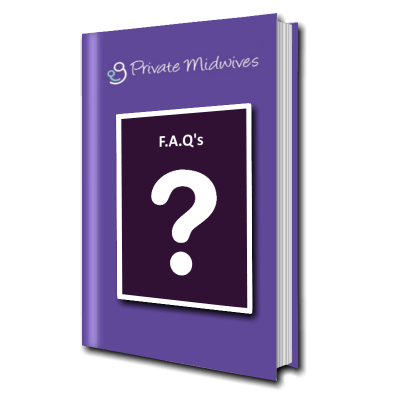NIPT Testing
Non-Invasive Prenatal Testing, or NIPT, is a blood test taken from mum at around 11 weeks of pregnancy or later, to screen for the chance of certain chromosomal abnormalities.
During pregnancy the placenta releases some of its DNA into your bloodstream, so your blood has both your DNA and some from the placenta. This is what Non-Invasive Prenatal Testing measures. If NIPT finds more DNA than expected for chromosomes 21, 18 or 13 in your blood it could mean that your baby has Down’s syndrome, Edward’s syndrome or Patau’s syndrome.
The test is a SCREENING test and so results come back as a chance or likelihood. It does not give you a definite yes or no. For a definite yes or no, you need a DIAGNOSTIC test such as CVS or amniocentesis. These diagnostic tests do carry a small risk of miscarriage and are invasive, so they are not normally offered to everyone as a first option. If screening shows a high likelihood of baby having a chromosomal abnormality, a diagnostic test is then offered.
Because Non-Invasive Prenatal Testing (NIPT) looks at baby/placental DNA, it is also possible to find out if baby is a little boy or a little girl, if you want to.
What is involved in NIPT tests?
You need to have had a scan before an NIPT blood tests can be performed. This is to confirm your dates and to check how many babies there are. The test can be done for twins, but the lab need to know to look for two different DNAs.
The midwife will come to your home and take the blood from your arm, normally between weeks 11 and 13. The tests can be done a few days earlier but the chance of needing to repeat the test are higher, so we suggest waiting until at least 11 weeks.
The blood goes to the lab and results are normally back between 4-10 working days. Times vary depending on how much DNA the lab can find and how easy it is to analyse it and get a good result.
We will then call you with the results and send you a report form to print off for your notes.
Which NIPT tests do we offer?
At Private Midwives we offer a choice of 2 tests.
SAFE TEST - See more information HERE
ILLUMINA TEST - See more information HERE
Both tests are very similar.
How accurate are NIPT tests?
No screening test is 100% accurate.
- In about 2% of cases, it will not be possible to give you a result. This is due to the complexities of genetics and pregnancy. It does not mean there is a problem.
- Most NIPT tests detect more than 99% of babies where the condition is present.
- In less that 1% of cases, a high chance result is given when the condition is not present. This is why a diagnostic test is always recommended for high chance results, just so you can be sure.
How much does NIPT cost?
You can book a single appointment and a midwife will come to your home, collect the blood test and we will call you with the result. This costs £475 in the UK.
If you have already booked antenatal care with us and are seeing a Private Midwife, we can add this test to your package. The cost is £300 in the UK.
If you have booked our Platinum package, or you have booked “antenatal care from early pregnancy with all bloods” a private NIPT test is included at no additional charge.
The cost covers the midwife coming to see you, explaining the test, taking the sample, posting to the lab, lab analysis, a call from us with the results and help to arrange any further investigations or appointment if they are needed.
More On Antenatal Care
Client Information Booklet
If you would like to know more information of what you can expect from us before making a booking please have a look at our client information booklet
See the Resource Library
Take a look at our resource library for guides on planning your birth, antenatal & postnatal plans of care, water births and much more.
Private Midwives Awards
We have been awarded the Winner of the Best Midwifery Service 2024 at the M&A Today Globabl Awards
We're also delighted to have been announced as the winner in the Diversity, Equity & Inclusion category at the Gamechangers Progress Champion Awards 2023 for both the UK and Ireland.
Thanks to all our midwives, office staff, our clients, our voters and nominators. We couldn't do any of this without you.


Work With Us:
Midwives: Work With Us
NHS: NHS Trusts
Telephone:
UK: 0800 3800 579
R.O.I 1800 937 119
Email:
info@privatemidwives.com
Copyright © 2021 Private Midwives
The Heath Business Centre, Runcorn, WA7 4QX
Website development by Arise Media
Copyright © 2021 Private Midwives
The Heath Business Centre,
Runcorn, WA7 4QX
Website development by Arise Media


